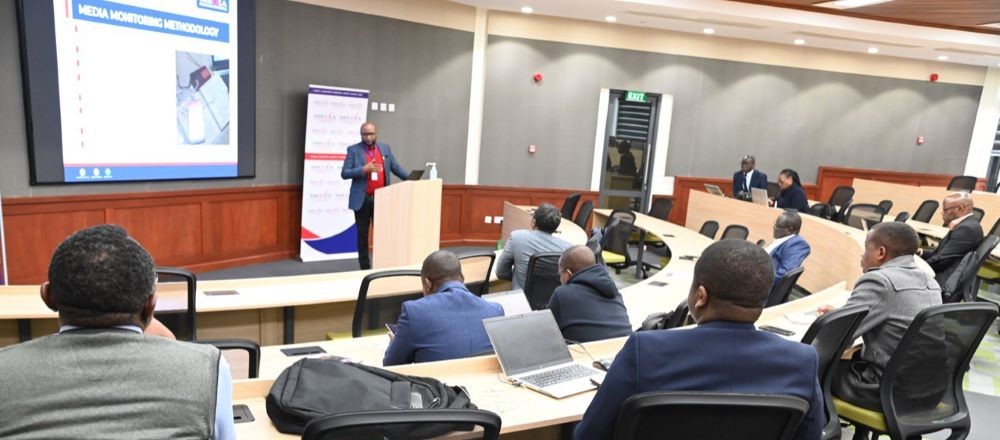
The Media Council of Kenya (MCK) has affirmed its commitment to enhancing professionalism in the media by strengthening its monitoring media function.
MCK Director for Media Training and Development Mr Victor Bwire says the Council has been able to implement interventions arising out of noted weaknesses in media coverage of diverse issues.
“Monitoring media performance is a key component in media training and development as it guides us on programmatic interventions needed to address capacity gaps that hinder professionalism amongst our journalists and media practitioners”, said Mr Bwire during a meeting with scholars and editors at the Aga Khan University Graduate School of Media and Communications (AKU-GSMC) to review the Council’s media monitoring reports.
“The Council commenced its media monitoring role in 2007. To date, we have over sixty media analysts monitoring the media on different platforms daily”, he said.
Mr Bwire emphasised that through constant media monitoring the Council has been to publish reports, bring out breaches to the Code of Conduct for the Practice of Journalism in Kenya and identify training gaps in the profession.
“From our media monitoring, we have published several reports on coverage of issues such as terrorism, gender, elections and lately on the presidential candidates for the 2022 General Election”, said Mr Bwire.
Speaking on the recent media monitoring report on coverage of the elections, Mr Bwire noted that the report was based on actual data, adding that it presented a true picture of how the media has covered the leading four contenders for Kenya’s highest political office.
“The reports do not only focus on media bias but also on space and time allocation. In future, we intend to share the data with editors and academia for in-depth review and learnings and to further the research and for quality control”, said Mr Bwire.
Mr Bwire urged the media to take criticism positively saying that it was part of the profession. “By accepting feedback on their work, journalists are able to improve on their reporting skills”.
He underscored the importance of access to information for the media and urged political players to allow journalists to access their events in order to obtain accurate information.
“Political parties that flush journalists from their events are going against international conventions and is a major violation of journalists’ rights’, he said.
AKU-GSMC’s Prof George Nyabuga said the institution remains keen on conducting media research through collaborations with bodies such as the Media Council.
“The University and MCK have had a long symbiotic relationship which has enabled the two institutions to work seamlessly in several projects aimed at boosting professionalism in the media. We remain keen on conducting research and knowledge dissemination”, he said.
“It is important to introspect and talk to each other on the reports done by the Council. We welcome collaborations as we relate the media monitoring and research content with the country’s realities”.
Prof Nyabuga underscored the importance of interrogating data especially around politics and elections, saying it contributes to credibility.
“Knowledge of key issues especially around elections is critical and we should be able to interrogate the data presented by the media to ensure a credible and reliable media. By doing so, we can be able to hold the media accountable and make them understand and take their responsibility seriously”, said Prof Nyabuga.
Veteran journalist and media trainer at AKU-GSMC Mr Joe Odindo commended the Council for the regular media monitoring reports and urged the Council to consider a report on other pertinent matters beyond media performance to inform areas of intervention and illustrations for learning.
“The Council should consider compiling a report on how issues such as media ownership, staff interactions and industry dynamics affect media performance in a broader perspective”, said the former Media Council of Kenya Chairman and former Editorial Director at Nation and Standard media groups.